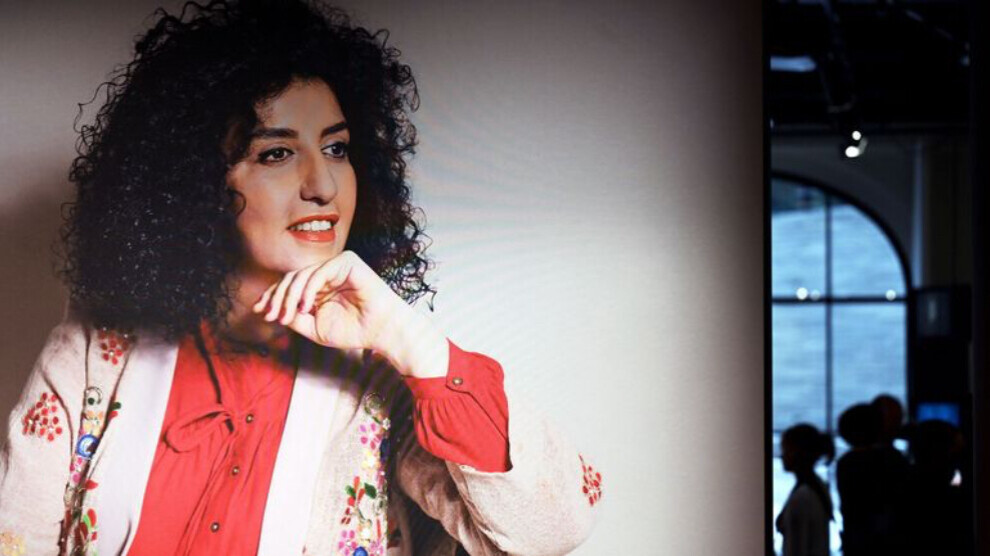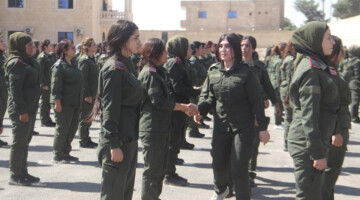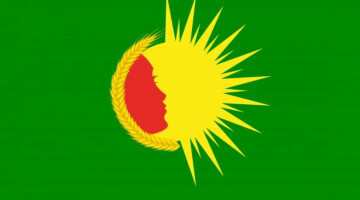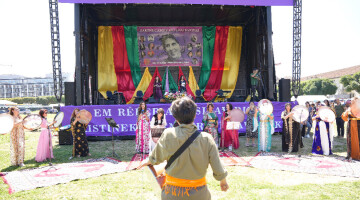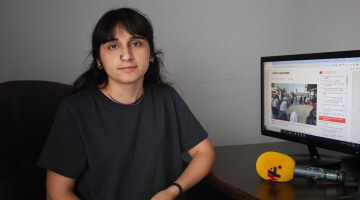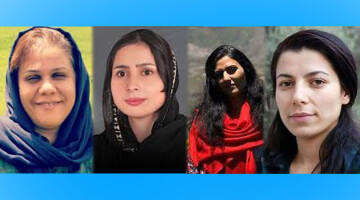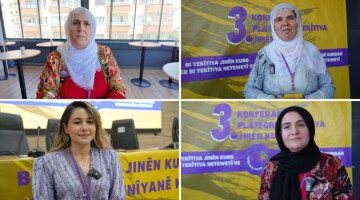Narges Mohammadi has been held in Tehran's Evin prison since 2021 for her struggle against compulsory hijab and the death penalty in Iran.
Narges Mohammadi, who was awarded the Nobel Peace Prize in early October, was not allowed to travel to Oslo to receive her award.
At the ceremony at Oslo City Hall, her 17-year-old twins Ali and Kiana, who have been living in exile in France since 2015, read out in French the message that Narges Mohammadi managed to deliver from her cell.
"I am a woman from the Middle East, from a region that, despite being the inheritor of a rich civilization, is now trapped by war and is a victim of the flames of terrorism and extremism," Narges Mohammadi said, adding that she wrote this message "behind the high and cold walls of a prison".
The 51-year-old activist, who has been repeatedly arrested and convicted in recent years, was one of the prominent faces of the "Jin, Jiyan, Azadi" (Woman, Life, Freedom) uprising in Iran.
"The compulsory hijab imposed by the government is neither a religious obligation nor a cultural model, but rather a means of controlling and subjugating the entire society," Narges Mohammadi said in her message.
Describing the obligation for Iranian women to wear the headscarf as a "shame on the government", Narges Mohammadi condemned the "cruel and misogynistic religious regime", painting a portrait of an Islamic Republic "essentially alien to its 'people'".
"The Iranian people will overcome repression and authoritarianism with determination," Narges Mohammadi said, condemning in particular repression, subjugation of the judiciary, propaganda and censorship, nepotism and corruption: "Do not doubt this, it is certain."
In the more than 100-year history of the Nobel Prize, Narges Mohammadi is the fifth person to receive the peace prize while imprisoned, after Germany's Carl von Ossietzky, Burmese Aung San Suu Kyi, Chinese Liu Xiaobo and Belarusian Ales Beliatski.
"Narges Mohammadi's struggle (...) is comparable to that of Albert Lutuli, Desmond Tutu and Nelson Mandela (all Nobel Prize winners), which lasted for more than 30 years before the end of apartheid in South Africa," said Nobel Committee Chair Berit Reiss-Andersen.
"Women in Iran have been fighting against discrimination for more than 30 years. Their dream of a brighter future will eventually be realised."
Narges Mohammadi's twins, who have been separated from their mother for more than eight years, say they do not know if they will ever see her alive again.
"Personally, I am quite pessimistic," her daughter Kiana said on Saturday, while her brother Ali said he was "very, very optimistic".

